Not sure about choosing a charger? Try our revamped Charger Finder!
Try our revamped Charger Finder!
- For Installations
- All our chargers come with a 1 year warranty
- Free Shipping
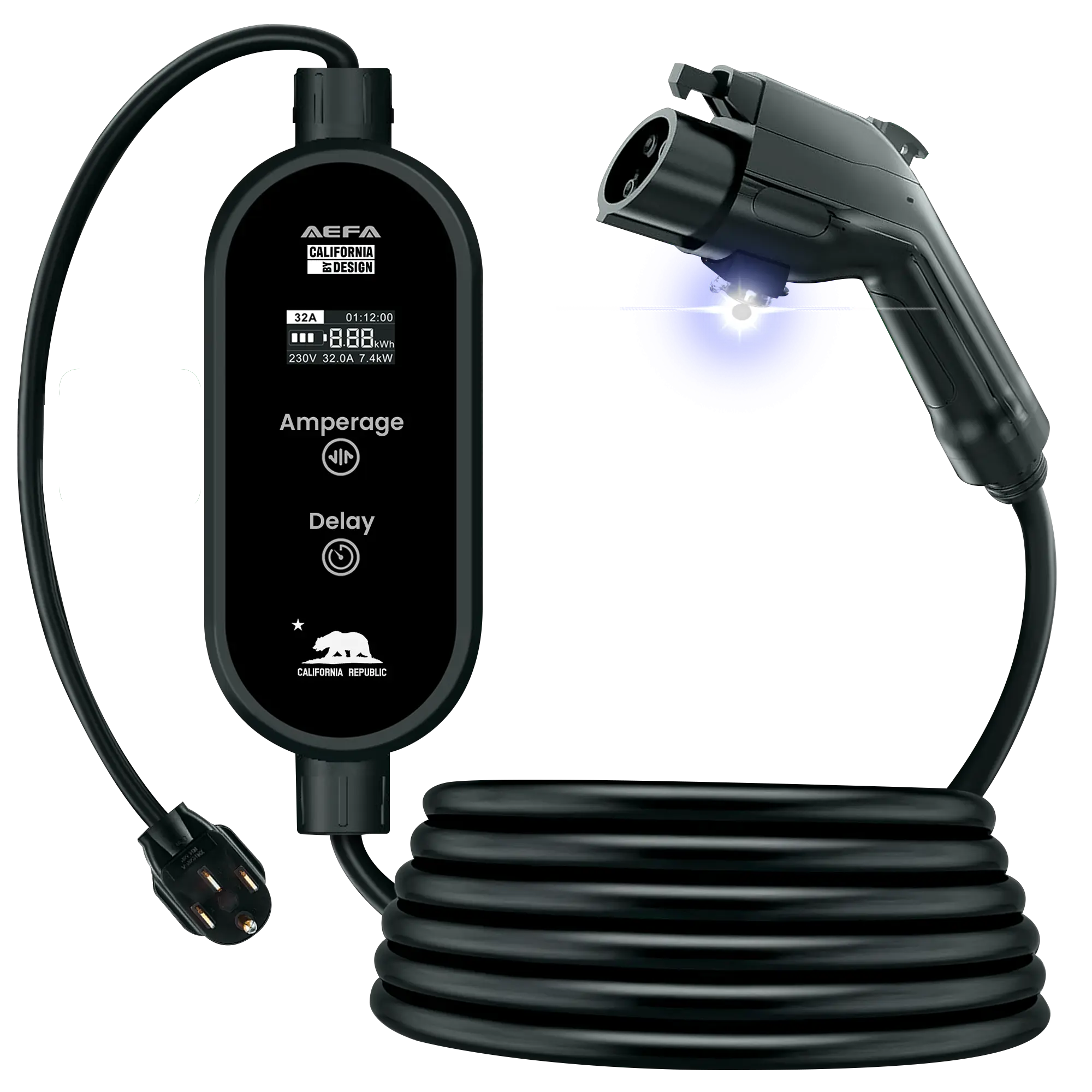

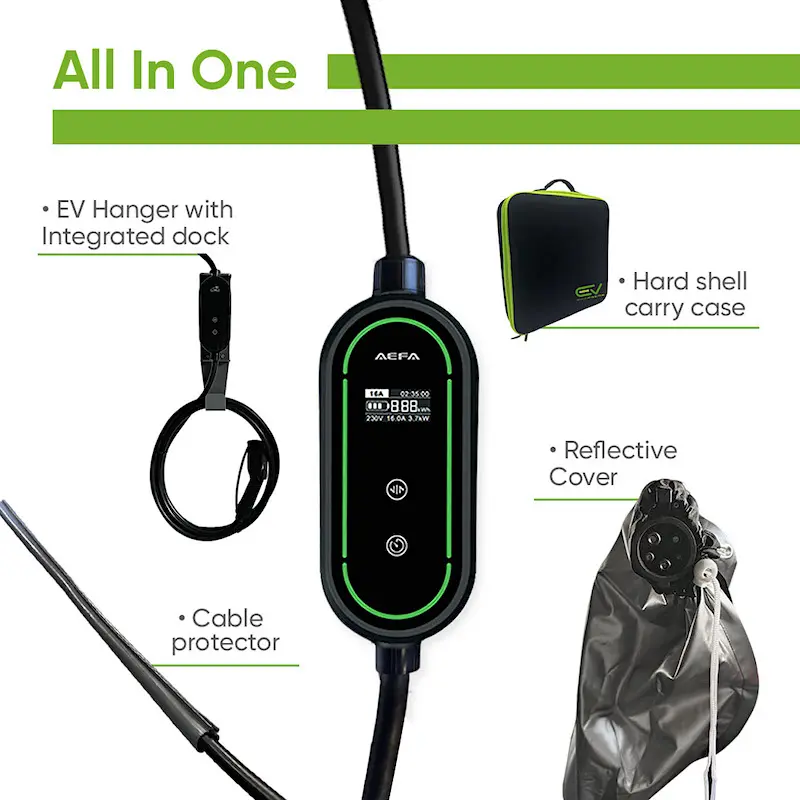
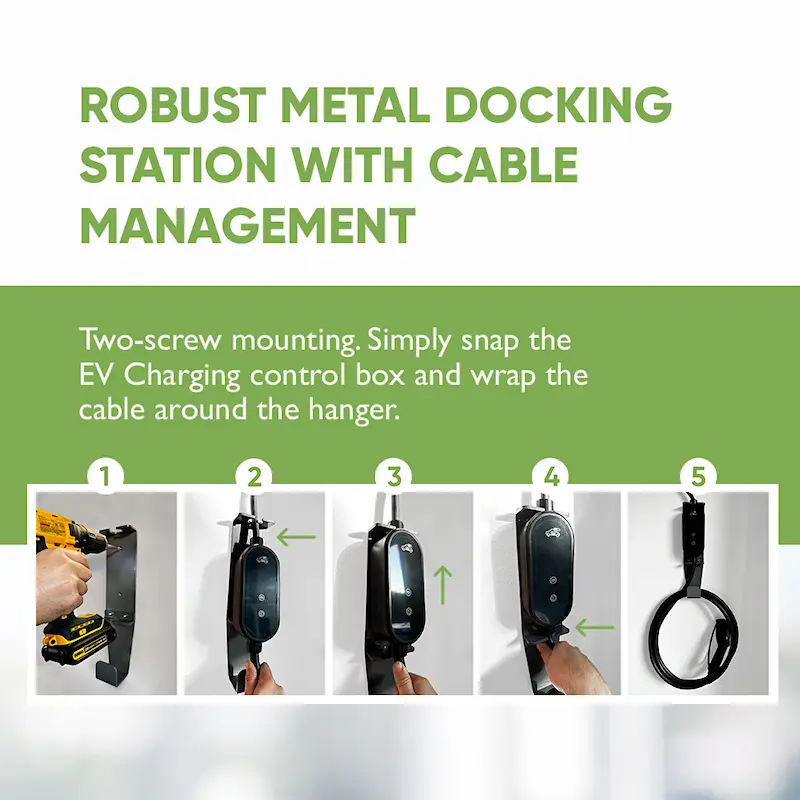
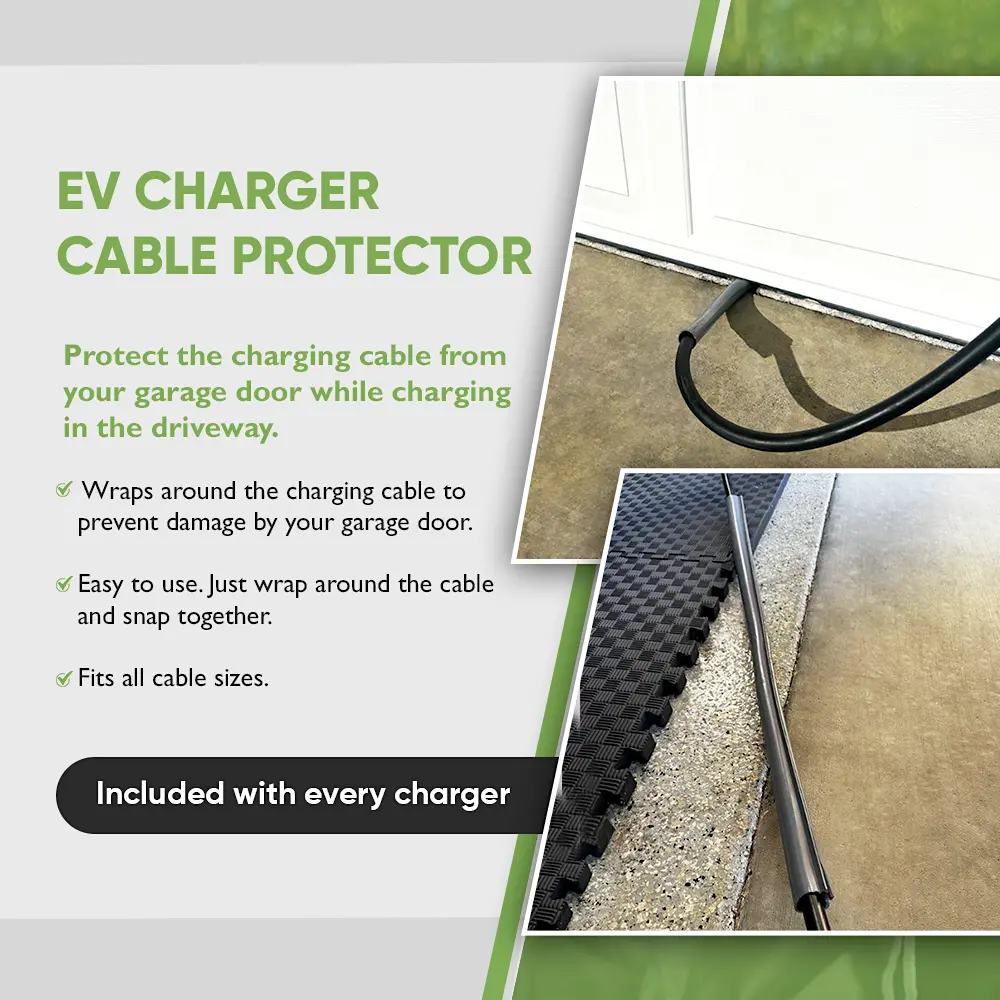
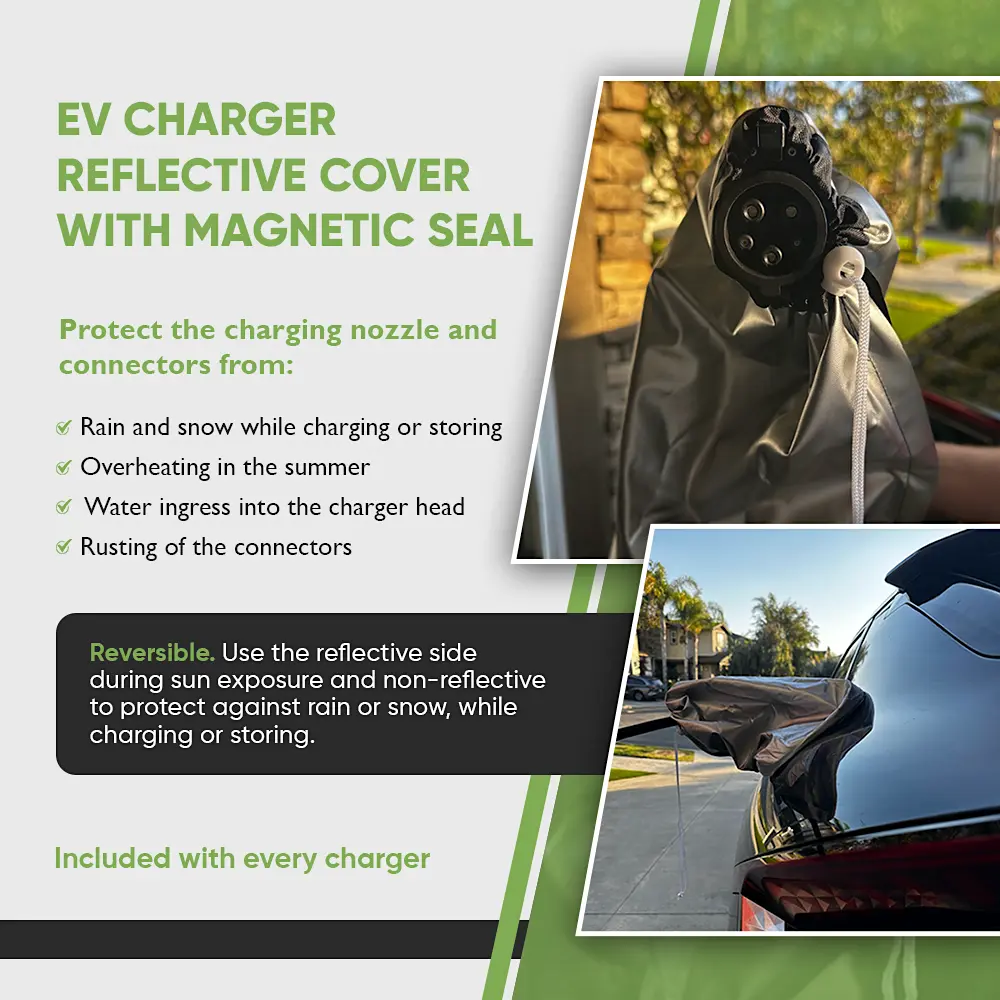
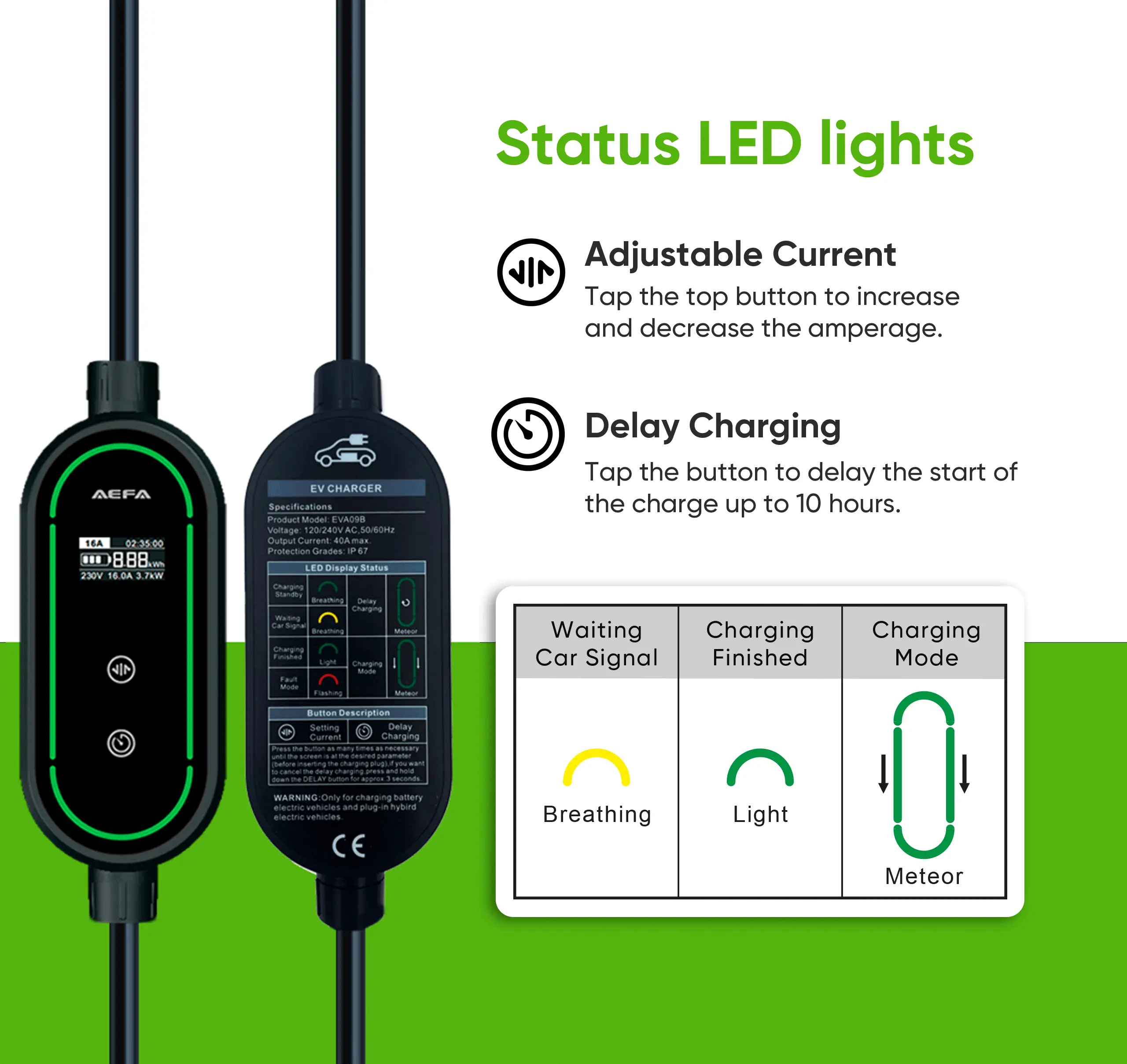
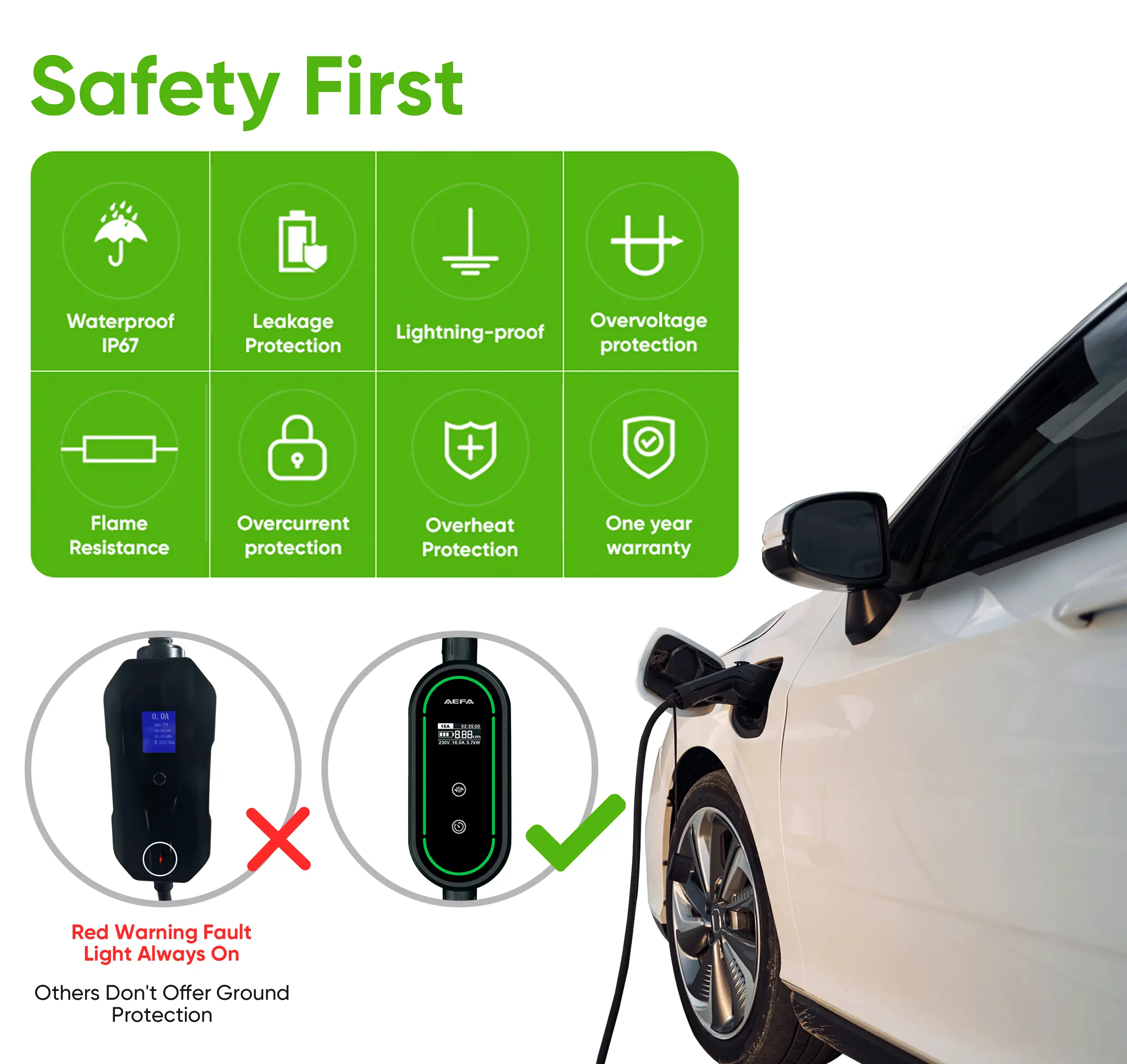
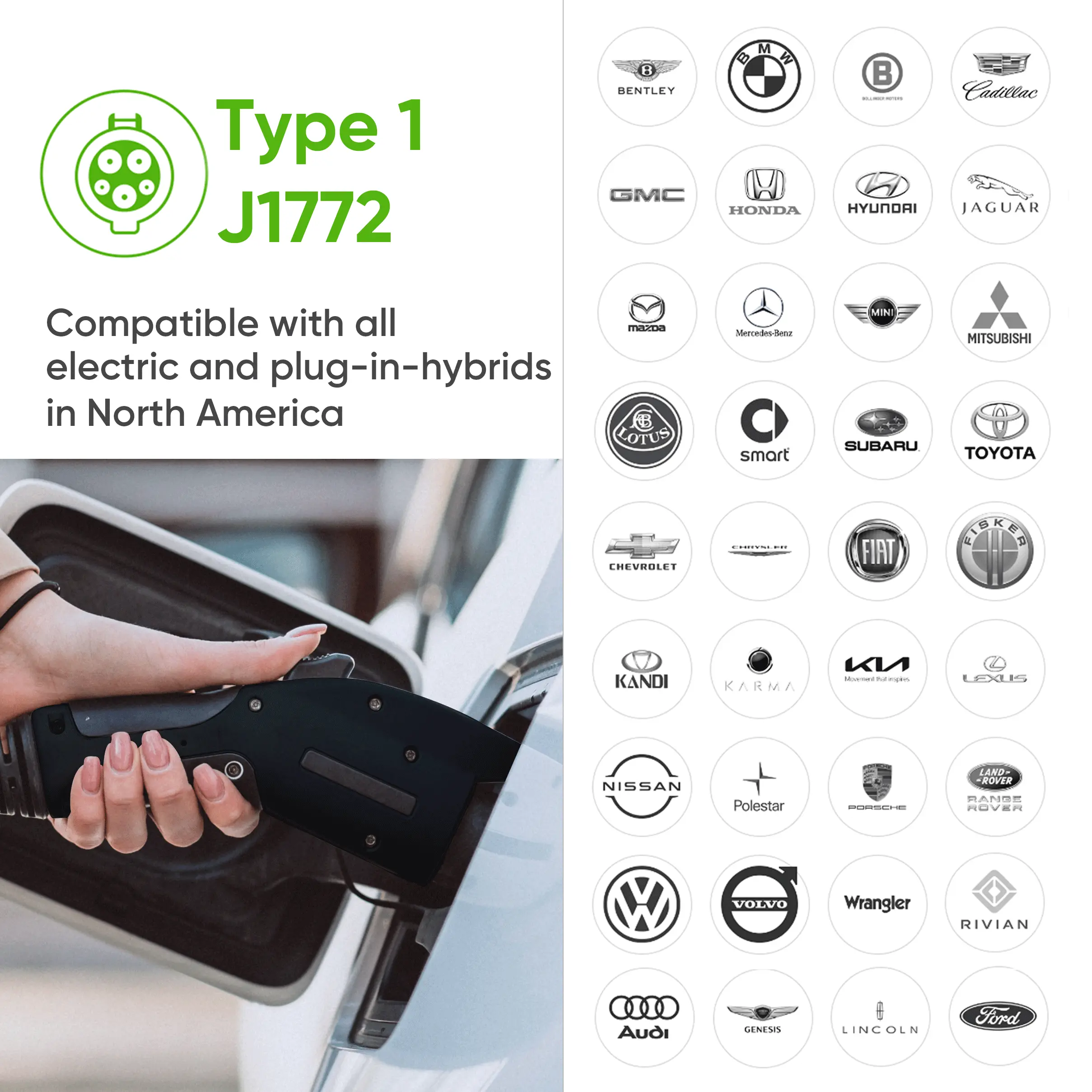
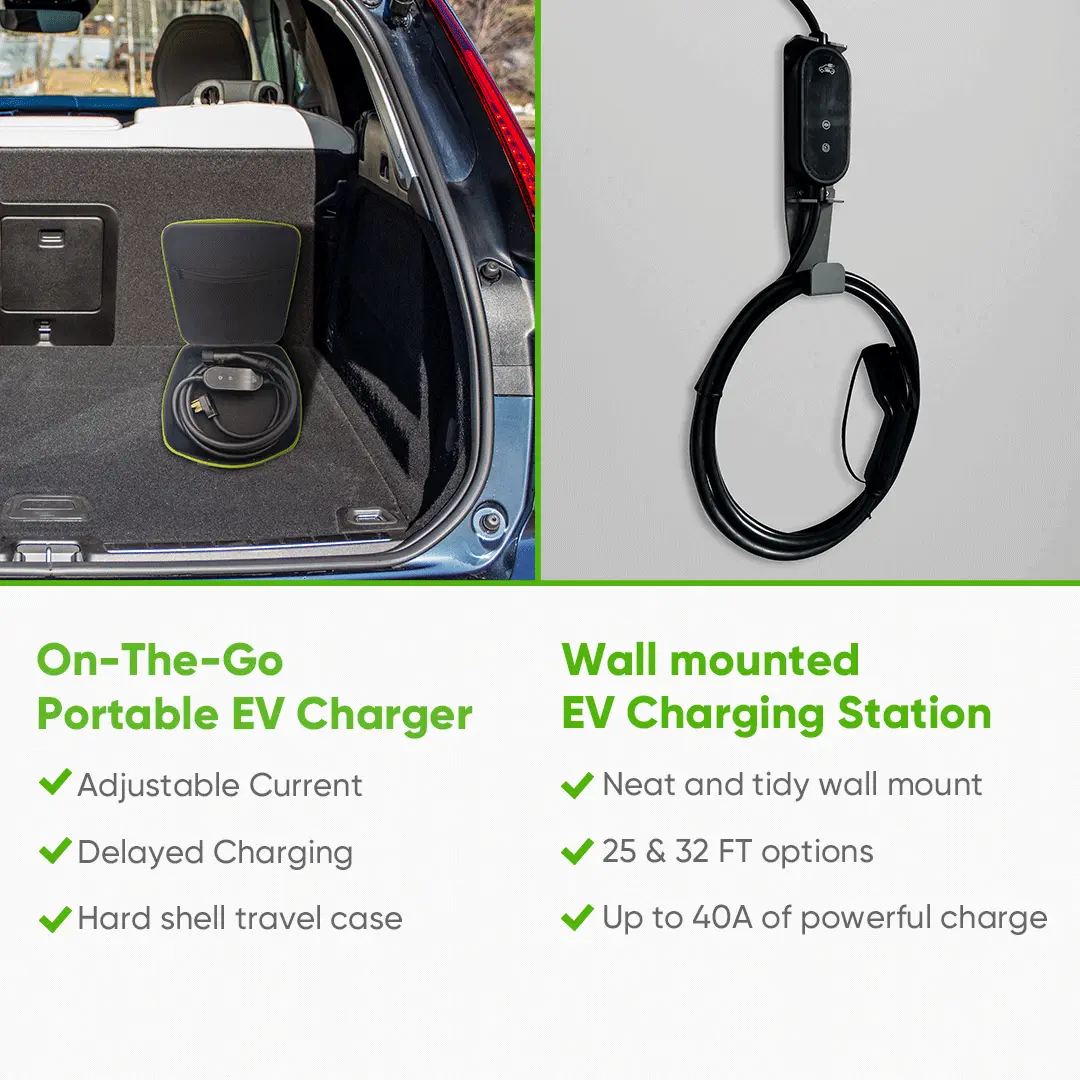
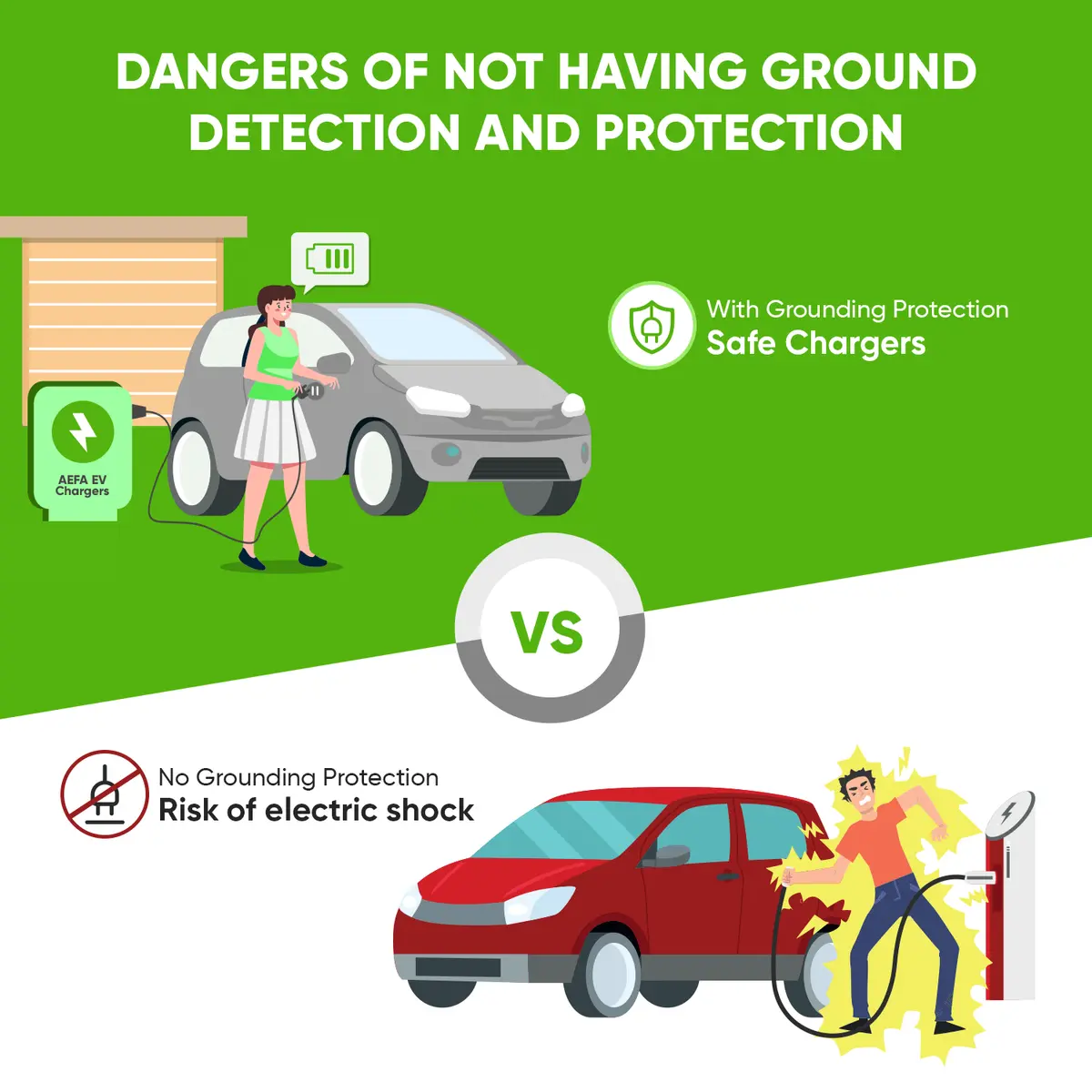
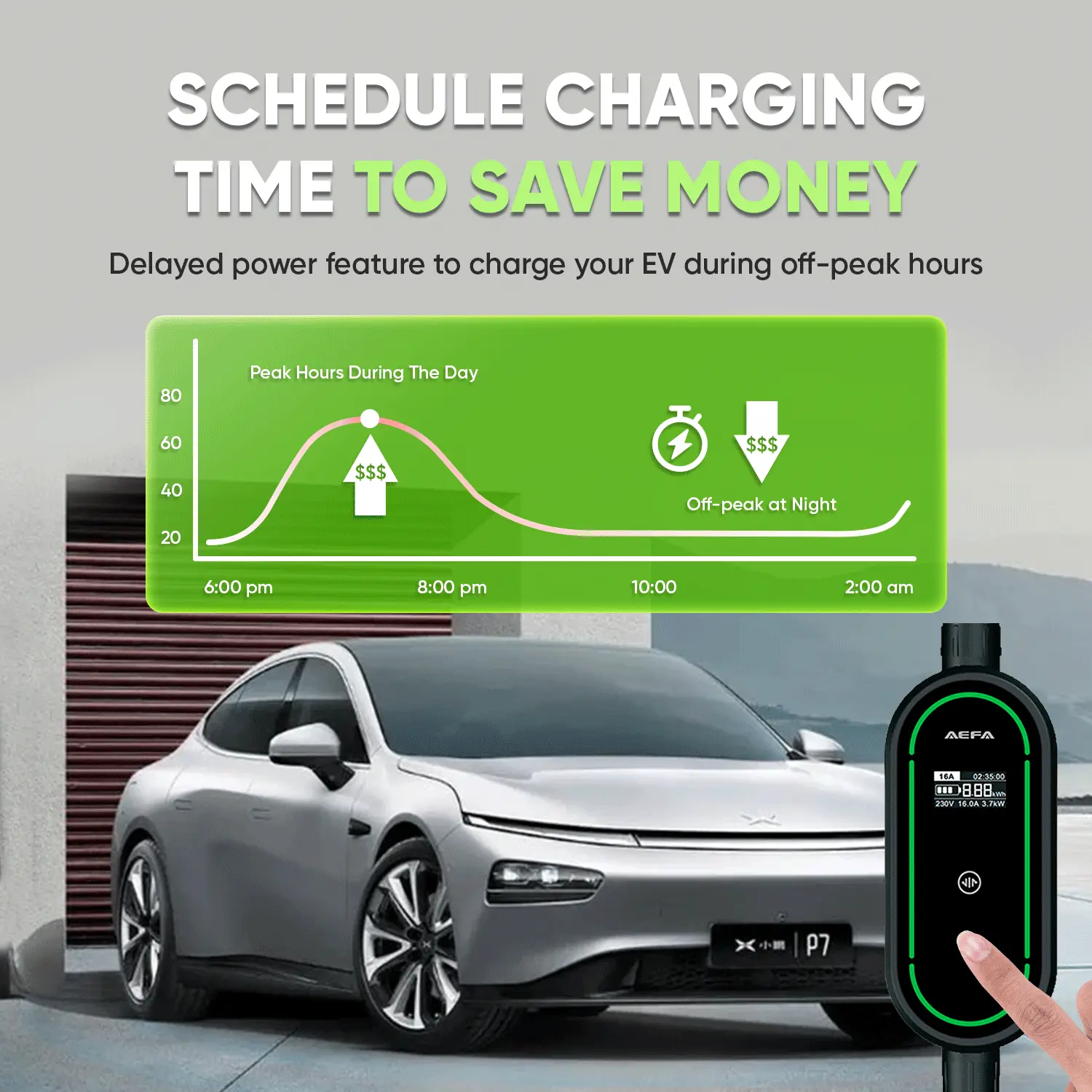
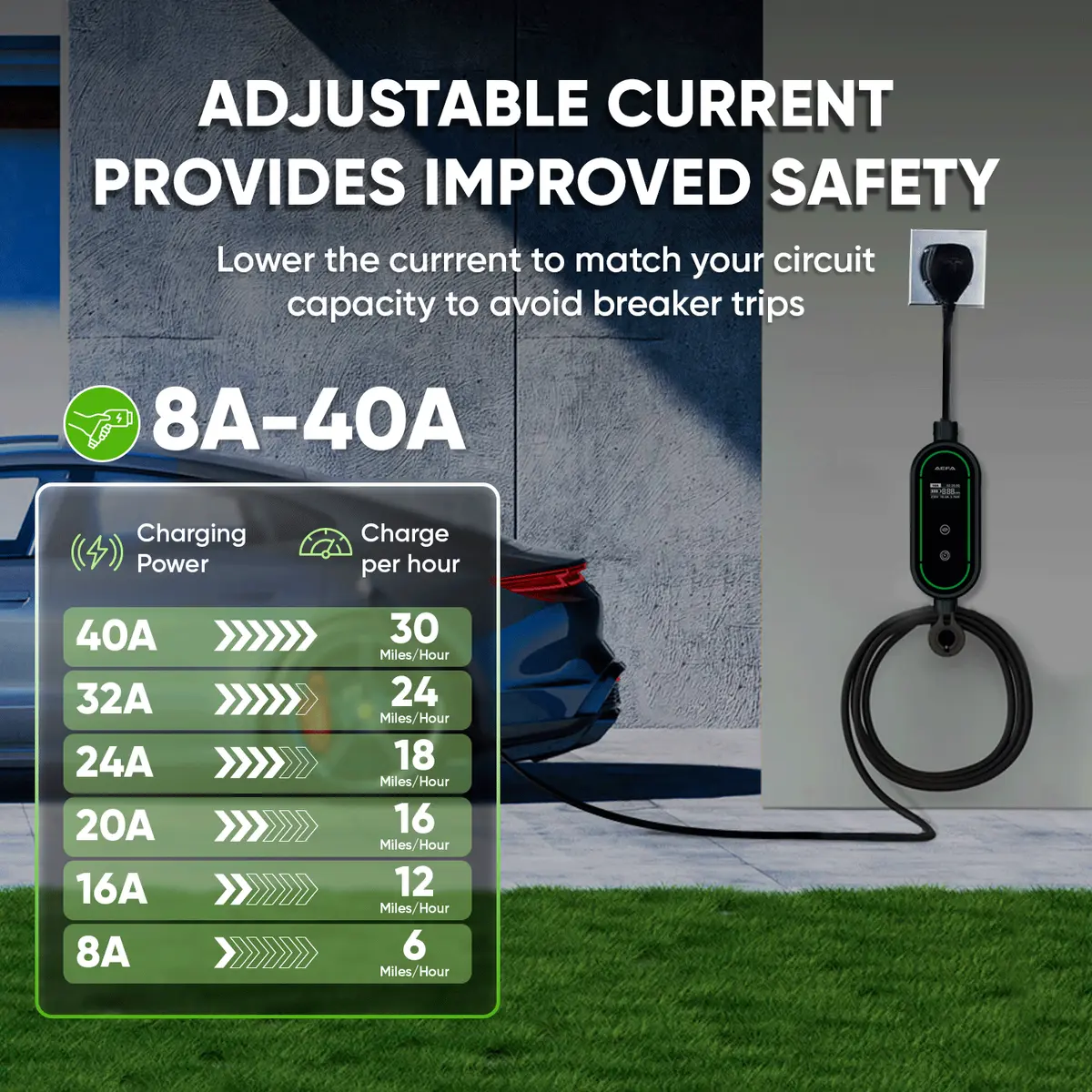
Starting at $120
This product is out of stock.
Order in the next hrs mins for delivery between 00 and 00!
| 3 Pin Plugs | NEMA 5-15 Socket (120V), NEMA 6-30, NEMA 6-20 (240V) |
| 4 pin Plugs
Rating Rated Currents |
NEMA 14-50, NEMA 6-50, NEMA 14-30, NEMA L14-40 (240V)
Indoor/Outdoor rated for installation anywhere 12, 16, 20, 24, 32 and 40 amp |
| Weight | 14 pounds |
| Connector Type | Type 1 (SAE J1772) lockable. Fits all cars including Tesla with Tesla supplied adapter |
| Control Box Dimensions | 2 inches deep x 3.5 inches wide x 8 inches long |
| Cable Length | Convenient 25 feet or 32 feet (total charging length from wall socket 26 feet and 34 feet) |
| Protection | IP67 (international standard EN 60529) |
| Assembly
Temperature |
None
22 degrees Fahrenheit to 140 degrees Fahrenheit |
| Warranty | 12 months |
| Input voltage | 208-240 Volts alternating current (AC), single phase |
| Approvals | CE, CB & TUV Approved |
| Material | Premium TPU with thin and lightweight cable |
| Compatibility | Suitable for all U.S. and Canadian EVs (SAE J1772 inlet) |
| Integrated DC Leakage Protection | Type B residual current detection |
| Surge Protection | Over/under voltage, overload protection, short circuit protection, leakage current protection, over
temperature protection, lightning protection, active ground detection |
| Ground Monitoring | Yes |
| Residual Current Detection | Alternating current 30 milliamps (mA), Direct Current 6 milliamps (mA)
*Requirements of GB 14048.2 – 2008, GB 16916.1-2014 and GB 22794-2008 |
| Features | LED indicator lights to manage charging errors |
The Kia Soul second-generation EV has significantly boosted Kia’s competitiveness in the EV market, with improved equipment, larger battery sizes and advanced car connected systems.
The first-generation Kia Soul EV had a 27 kW/h battery which provided 93-mile electric range whereby the second-generation boosts an impressive 243-miles from its 64kW/h battery. The development of the battery size has brought improvements in the performance and efficiency of the vehicle, not only the advancements in electric range.
The Kia Soul EV is fitted with a J1772 Type 1 connector which enhances the EVs compatibility with Level 1, Level 2 and DC Fast charging, which are further explained within this guide. Additionally, the CCS charging standard is supported, utilizing a CCS connector for both AC and DC charging. This allows for faster charging capabilities, especially with rapid DC charging. Charging time for the Kia Soul EV varies depending on the method used, with rapid charging significantly reducing the duration compared to slow or fast charging.
The power acceptance rate of the Kia Soul EV is limited to its 7.2kW rated output which means the EV will only be able to charge at this maximum rate.
Overall the changes made to the second-generation Kia Soul EV make this a much more attractive and practical option for potential EV buyers. This guide provides valuable insight into the EVs performance on electric range, charging durations and potential costs.
| Battery Size |
|---|
| 64 kWh |
| DC Commercial Charging compatibility |
|---|
| Yes |
| Cost per Charge |
|---|
| $13 |
| Level 2 charging i.e. residential EV charge |
|---|
| Yes |
We have created a table which shows the charging times of the Kia Soul EV, assuming the charge time is from an empty battery to full, including its 7.2 kW on-board charger that supports Type 2 AC charging and a combined AC and DC inlet port. This table compares charge times for different EV plug types. Fast charger and rapid charging options can significantly reduce charging times, especially at public charge points:
| Plug Type |
|---|
| Level 1 – 5-15 (regular 3 pin) 120 volt |
| Level 2 – 14-30 (4 pin electric dryer type) 240 volt |
| Level – 14-50 (4 pin EV Plug) 240 volt |
| Battery Size (kWh) |
|---|
| 64 kWh |
| 64 kWh |
| 64 kWh |
| Cost per Charge |
|---|
| 1.9KW/hour @ 12 amps |
| 5.5 KW/hour @ 24 amps |
| 9.6 KW/hour @ 40 amps |
| EV Charge Time |
|---|
| ~34 hours |
| ~12 hours |
| ~7 hours |
EV owners will typically charge their vehicle between 20% to 80% to protect the battery and the longevity of its performance. It is common for EV owners to charge their vehicle from a low of 20% battery, therefore reducing charging times significantly with slow charging methods.
The Kia Soul is charged via a Type 1 J1772 charger connector which can be performed at home, at work or a public charging point that has level 2 commercial charging facilities. The Kia Soul has a maximum charge rate of 7.2kW/h which is the EV’s maximum alternating current (AC) determined by the onboard software. The Kia Soul EV’s CCS (Combined Charging System) includes an inlet port designed for both combined AC and rapid DC charging, allowing for different charging speeds and types at home and public charging stations. The recommended charger for the Kia Soul is a Level 2 40-amp 9.6kW/h EV charger as this will maximize the efficiency of charging this vehicle.
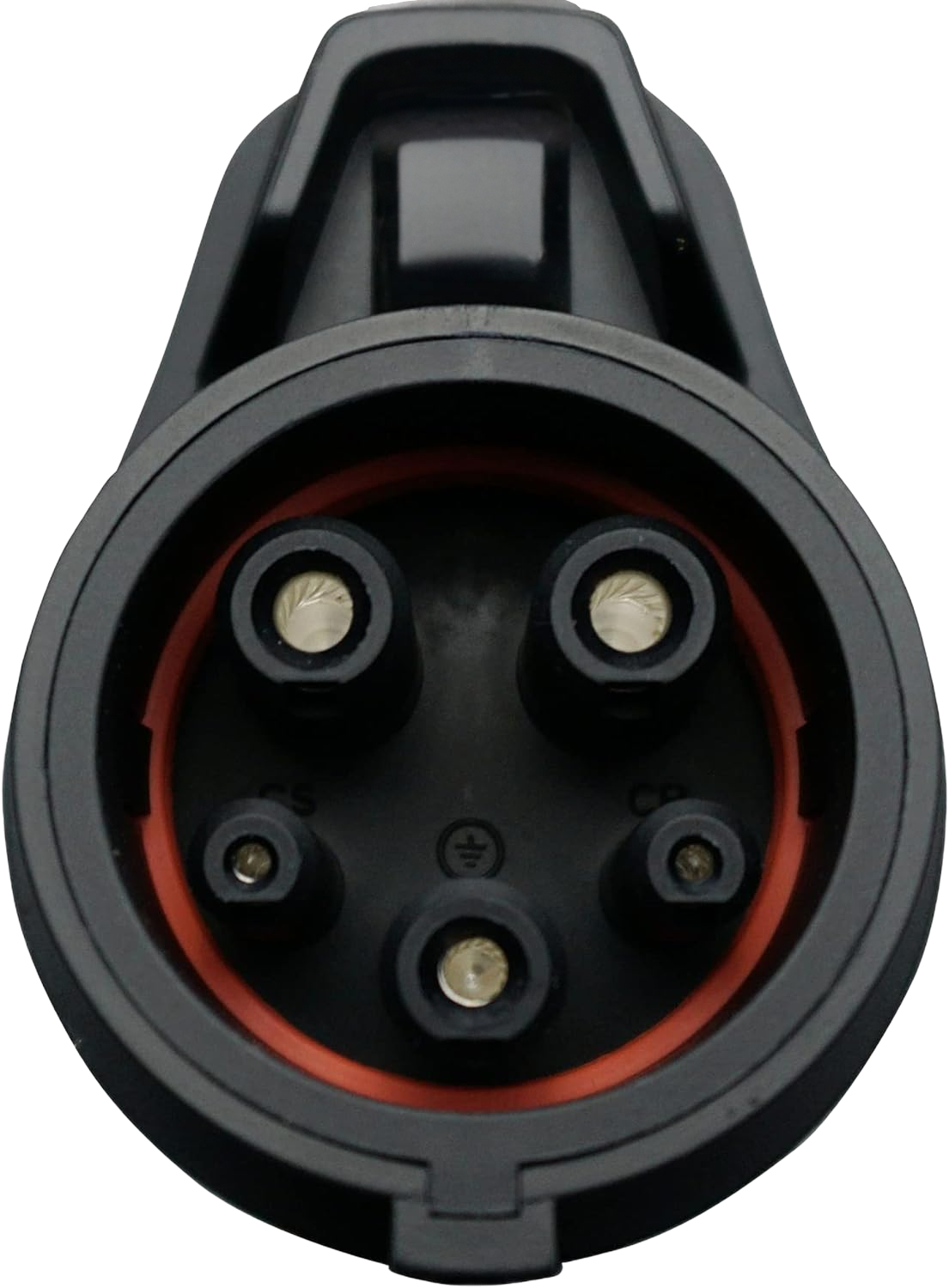
The majority of EV owners will opt to charge their vehicle at home as a result of the added convenience, speed of charging, and comfort of using their own charging unit. Additionally, owners can plug in at various locations such as the workplace, supermarkets, and parking areas, providing flexibility and convenience. However, this is often costly, time-consuming and inconvenient.
This also allows owners to benefit from charging at preferential residential rates and utilizing lower overnight electricity rates, as opposed to commercial charging rates. There is added complexity around the commercial chargers available to EV owners such as compatibility issues and connectivity issues which can confuse EV owners and result in home charging their vehicle.
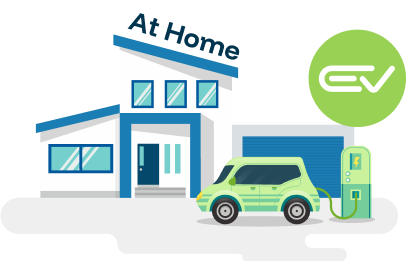

The cost of charging your Kia Soul will differ depending on a number of variables, however mainly due to: location of charge being either residential or commercial, time of day and U.S. State of residence. The charging cost table below uses the U.S. current averages for residential electricity of 20 ¢/kWh. Below assumes 243-mile EV range of the Kia Soul
| Place | |
|---|---|
| Home (empty to full)* | Commercial Chargers ** |
| Average Cost | |
|---|---|
| ~$13 | ~$26 |
| Cost/Mile | |
|---|---|
| $0.06¢ / mile | $0.11¢ / mile |
* Assumes 0.20 ¢/kWh average U.S. tariff. Residential tariffs vary by State.
** Assumes 0.40 ¢/kWh tariff for most Level 2 (AC) or Level 3 (DC) network EV chargers in 2024.
If you don’t find the answer you need, feel free to contact us.
Yes, the Kia Soul can be charged by both DC commercial charging and Level 2 charging options.
The charger type which provides the fastest charging option is a Level 2 NEMA 14-50 EV charger or hardwired EV charger, this is an EVSE or EV charger that supplies between 208 and 240 volts
It uses a J1772 SAE Type 1 EV charger, also referred to as CC1 in DC charging situations
Generally not, a level 1 EV charger will take 34 hours to charge the Kia Soul.
All EV chargers are compatible with the Kia Soul EV and are interchangeable between vehicles. There are various residential and commercial EV chargers designed to cover all EV charging needs.
The Level 2 NEMA 14-50 EV charger is the most popular charger type as it is used universally, is compatible at most campgrounds and at most new home residences.
The key benefits of Level 2 charging options are: reduced charging costs, added convenience of home charging and speed of charging.
Our high power level 2 EV chargers will complete a full EV charge in around 7 hours.
Alternatively, we have a complete range of Kia Soul EV chargers with all different EV plug types.
Thanks for your interest! We’ll be notifying you once the product gets back in stock.